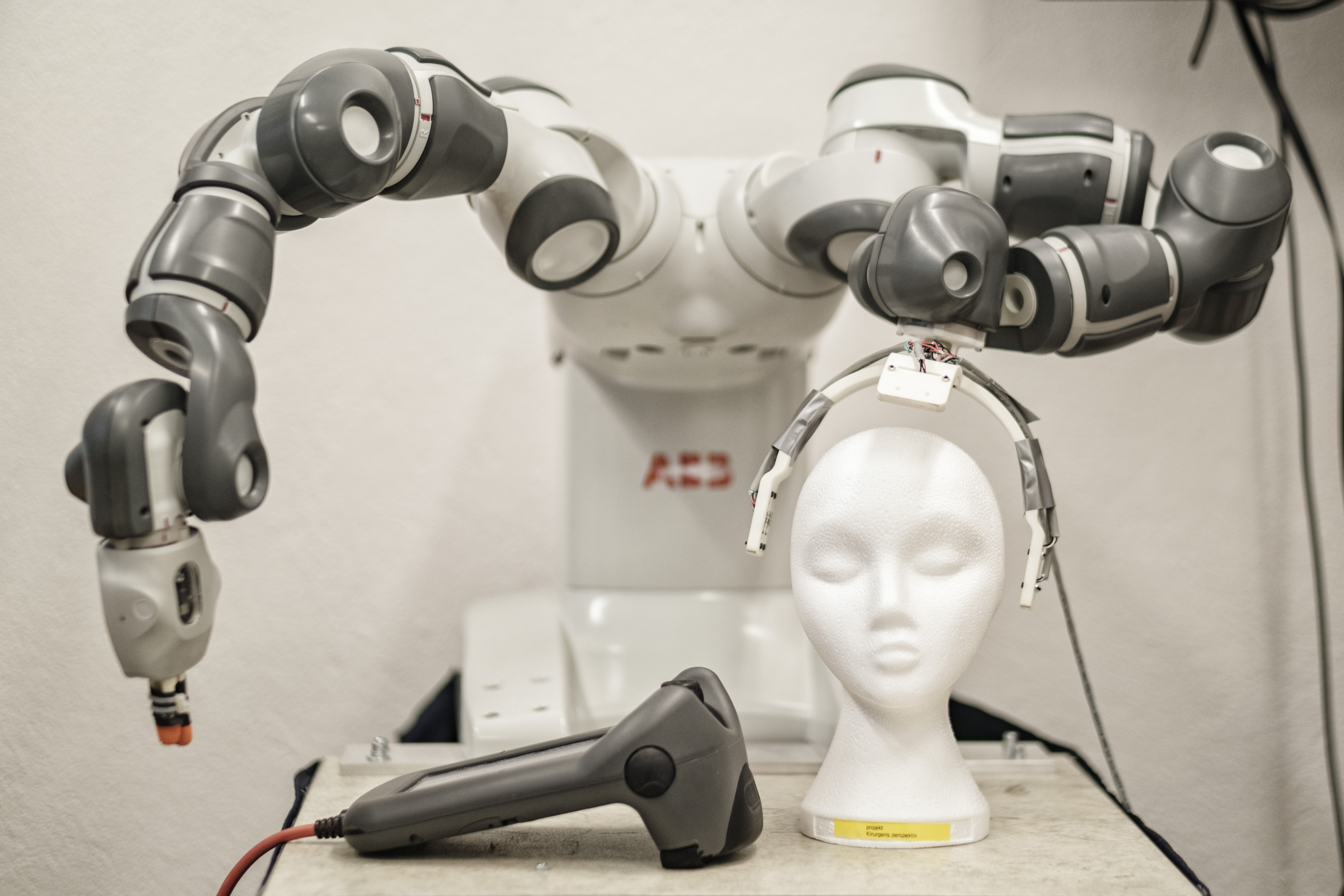Dreams, discoveries – and digitalisation
– Published 15 February 2019

The development of robots is truly fascinating. Consider, for example, Isaac Asimov’s I, Robot from 1950, a book of nine short stories published in Swedish translation in 1954. Today, we find ourselves closer to, or actually in, a reality where robots figure in everyday life. Is this to be considered exciting of frightening? It depends, of course, on who you ask, but there are obvious questions: Where and how will robots be used in the future? What characteristics must they have to carry out the tasks we require of them?
The robot is a natural part of today’s industry. But what will the situation be in healthcare, elderly care and education?
This autumn, I had the honour of inaugurating six new professors. One of them was Volker Krüger, who is professor of computer science specialising in robotic systems. Volker Krüger was recruited within the Wallenberg AI, Autonomous Systems and Software Programme (WASP), which is a very important research programme for LTH and Sweden, and his research focuses on creating a robot with the ability to see and think independently, enabling it to carry out new tasks. This is very clearly linked to artificial intelligence (AI) and can open up new worlds for us all.
Digitalisation is currently changing the world at a rapid rate, and we see lot of new opportunities and risks. For LTH, it is a considerable advantage to be part of the “comprehensive” Lund University. In our interdisciplinary networks – such as the newly formed AIML network for artificial intelligence – the researchers contribute not only to technical developments, but also address the legal, business, societal and ethical implications of digitalisation. One of the fundamental questions is: How do we ensure that the technology is used to serve mankind?
At LTH, we consider that digitalisation already benefits society and there is more to come – this is hopefully shown in the accounts and examples in the new issue of LTH-nytt. (This magazine in Swedish is a regular source of interesting glimpses of LTH’s creative development of technology, architecture and design, and you are welcome to share it, in printed or digital format, with friends and others who are interested!).
At LTH, we shall develop first-cycle education that takes digitalisation’s opportunities into account and corresponds to the students’ legitimate expectations.
Within our unit for educational development, the Centre for Engineering Education (CEE), we are implementing a major digitalisation initiative. Also spurred on by the chair of the Faculty Board, Charlotta Falvin, we are introducing Active Learning Classrooms, and we will use digital learning aids in teaching to a greater extent. We want to ensure that students have a good platform for digital learning, but retain the advantages of meeting in the traditional “analogue” world.
Last but not least: One item of LTH news that I think is particularly pleasing to pass on is that since the start of the year we have a new vice-dean for digitalisation, Björn Regnell. I would like to extend a warm welcome to Björn in his new role, and look forward to working with him and LTH being able to reap even greater benefits from his knowledge and wisdom! One thing I can tell you about Björn Regnell is that he is one of the people who has pushed for programming to be on the curriculum of Sweden’s primary schools. One argument he has used concerns general knowledge:
“Everyone needs basic knowledge of computer science and programming to actively participate in the development of society.”
Björn is also a driving force in the renewal of the teaching of programming in the Master’s programme in computer engineering, and he uses the powerful programming language, Scala, as first language in his teaching for beginners at programming for both engineers and school pupils. In his research activities, he focuses among other things on requirements analysis for open source code and methods for making well-founded decisions on what shall be included in the next software release.
Opportunities, risks, ethical considerations. It is exciting to be at LTH and be involved in work together for digitalisation that benefits people!
Viktor Öwall
Dean of LTH
PS At LTH, our optimism about the future is also shown in our education: we recently increased the number of students and focused on three new international Master’s programmes, more precisely in AI, VR (Virtual Reality) and pharmaceuticals.
